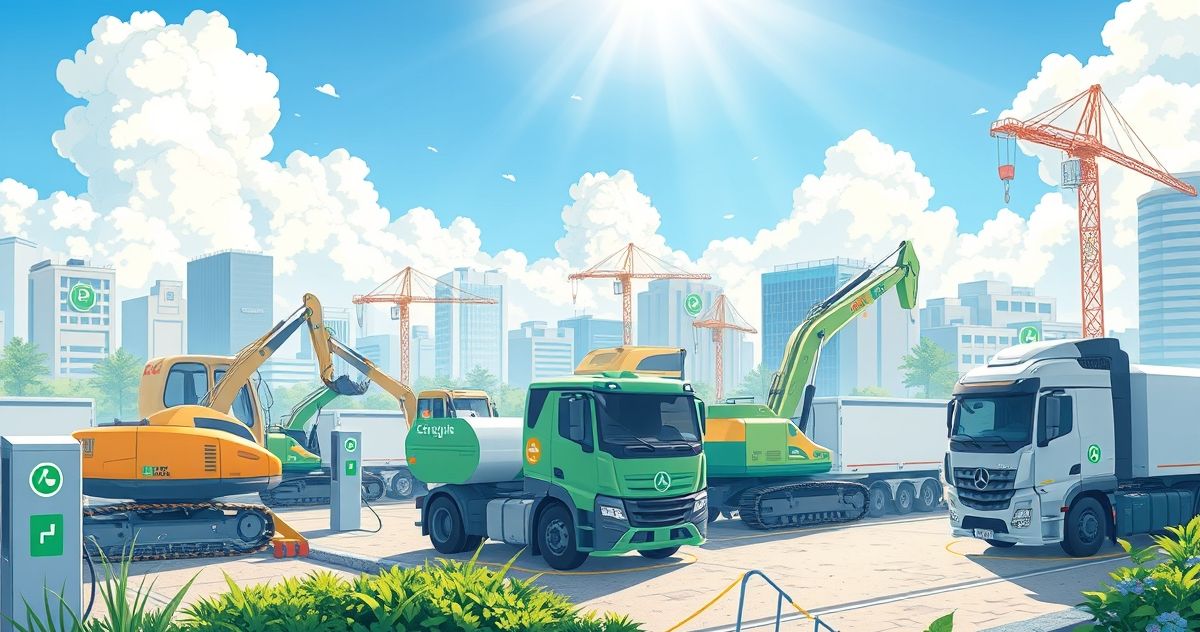
The electric vehicle revolution is rapidly expanding beyond passenger cars to encompass commercial trucks and heavy construction equipment. The latest electric truck models now support 40-ton payloads and can be equipped with up to six battery packs, achieving massive 540kWh capacity.
Breakthrough in Commercial Vehicle Electrification
These technological advances have dramatically reduced charging times for electric trucks, with full charging now possible in just two and a half hours. This represents a critical turning point for commercial vehicle electrification, addressing one of the industry's most significant operational concerns.
Previously, the electrification of heavy commercial vehicles faced substantial barriers due to limited battery capacity and extended charging times. However, recent electric truck releases have made significant strides in overcoming these technical limitations.
The 540kWh high-capacity battery system is expected to provide sufficient range for long-distance freight operations, marking a significant advancement in commercial transportation capabilities.
Revolutionary Battery Technology
The battery systems deployed in these latest electric trucks feature modular architecture, allowing for additional battery packs to be installed based on operational requirements. This design enables optimized battery configurations tailored to specific transport distances and cargo weights.
Furthermore, rapid charging technology developments have substantially reduced charging times, addressing the efficiency concerns that are paramount in commercial vehicle operations.
Heavy Equipment Electrification Gains Momentum
Beyond trucks, the electrification of construction equipment is also accelerating rapidly. Electric models of excavators, bulldozers, cranes, and other heavy construction machinery are increasingly entering the market.
This electrification of heavy equipment offers significant benefits for urban construction projects by dramatically reducing noise pollution and air emissions at construction sites.
Impact of Environmental Regulations
Government carbon neutrality policies and strengthening environmental regulations worldwide are serving as major catalysts for commercial vehicle electrification. Urban areas are increasingly implementing restrictions on diesel truck operations, making the transition to electric commercial vehicles inevitable.
Consequently, logistics and construction industries are actively considering electric vehicle adoption, with related infrastructure development proceeding in parallel.
Infrastructure Development Imperative
The success of commercial vehicle electrification requires substantial expansion of high-capacity rapid charging infrastructure. Installation of dedicated charging facilities at highway rest areas, logistics centers, and near construction sites is urgently needed.
Both government and private sector investments in this infrastructure development are expanding, laying the foundation for widespread electric commercial vehicle adoption.
Future Outlook and Challenges
Industry experts predict explosive growth in the electric truck and heavy equipment markets within the next five years. However, challenges remain, including high initial purchase costs and insufficient charging infrastructure.
Nevertheless, continuous advances in battery technology and cost reductions through mass production are expected to gradually resolve these issues, paving the way for broader market adoption.
Original: https://trendy.storydot.kr/it/electric-vehicle-expansion-commercial


0 Comments